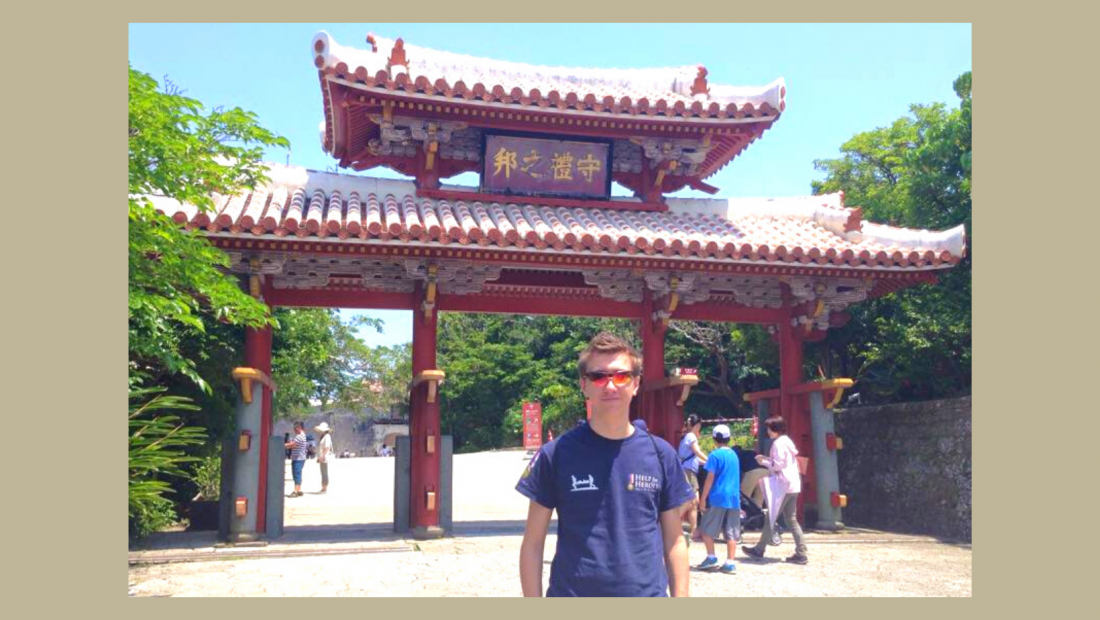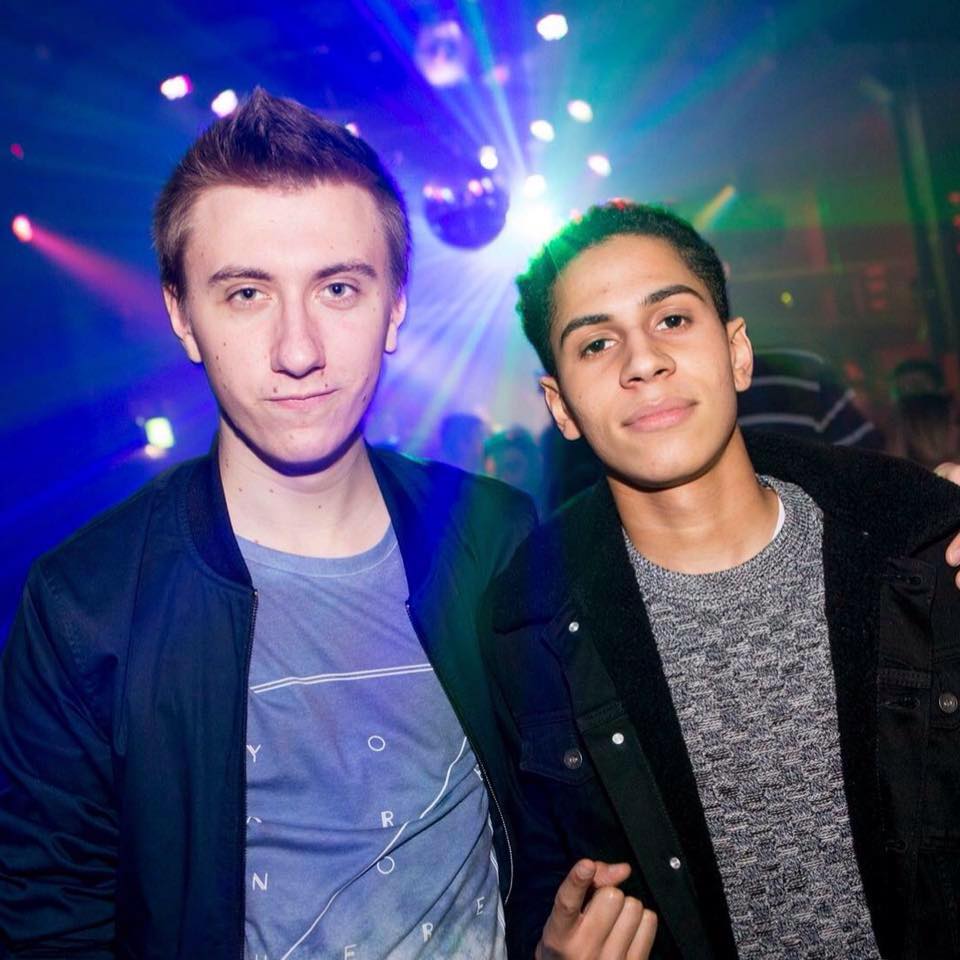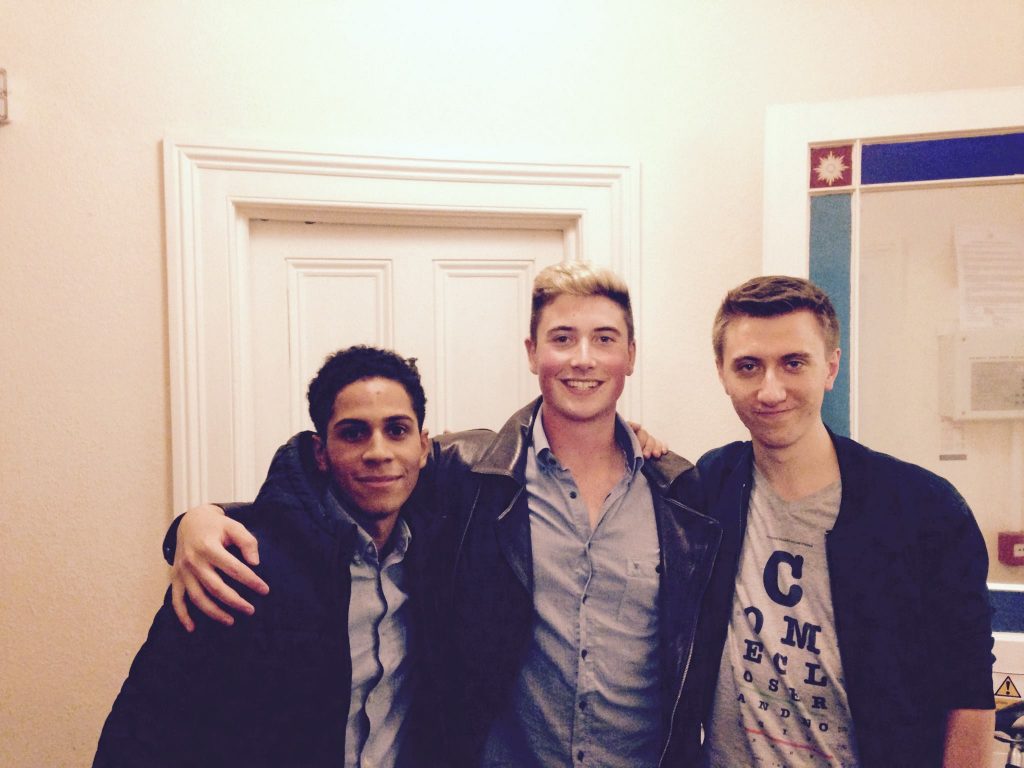Oliver Trapnell, 24, overnight reporter at the Daily Express, London based.
My whole journey has been a bit difficult. In the UK we have this idea that we’re supposed to know what we want to do by the time we are 16, which I think is unreasonable, in so many cases, including my own.
The UK system is very bad in the sense that as soon as you finish your GCSE is you are thrust onto a very singular track or very singular line towards a job or a career path that ends after you finish uni; and it really all starts with your decision after GCSE to take specific subjects at A level.
I was very fortunate that at the time, my school introduced the International Baccalaureate. So I was the first year to go through the IB program, and automatically that gave me a bit more breadth and choice, because I didn’t know what I wanted to do even when I graduated school.
When I was 18, I still had no idea what I wanted to do, so I took a took a gap year where I could kind of think about what I wanted to do, and I ended up getting on a cruise ship, and we sailed four months around the whole globe, literally around the whole planet, and visited more than 20 countries, then I traveled around Japan for an additional three months.
I’d always had this love with Japan and knew I wanted to go back there. My parents lived and worked there for a time when I was growing up, and that really had a big, big impact on me. So over my gap year, I really had this idea in my mind that I wanted to, experience kind of culture in a different way experience different cultures, the UK is fine, I guess but you know, there’s so much more to the world than just the UK and I really wanted to explore that.
When I started at uni, I started on an undergraduate in anthropology, because at the time, I was very interested in learning about different cultures and travel. So I was very lucky that on my undergraduate course, I had the chance to study a lot of things about Japan, and also have a year abroad there. So I spent a year studying in Tokyo and that whole experience there was really enlightening for me, in many ways.
Maturity shift
People in their 20s tend to kind of have this idea that it’s fun and all the rest of it, but I definitely think that stage is more directed at people in their early 20s than in their late 20s. There definitely comes a time where there’s a maturity shift, and for me, that happened in 2018, and I was probably 20, 21 around the time.
In my personal experience, I definitely did spend time thinking of my 20s is kind of a fun time. I lived the young life, I went out partying, I went to clubs, all that sort of stuff; and there kind of came a time where I had to make decisions about my lifestyle and my finances, in which I couldn’t balance some of those things. Having that level of maturity kind of helped push me into becoming an adult, rather than relying on those slightly fun ideas of being in the 20s.
Being an adult
Being an adult means different things to different people, you can be still gauged as an adult based on things that have happened in your life, potentially traumatic experiences or, or lifestyle changes that you make that can kind of alter your life in different directions, then you’re kind of forced into a situation where you need to grow up basically. For some people it doesn’t happen until late into their 20s. And some people it will happen a lot earlier.
I can only speak for myself when I say that. I definitely class myself as an adult. Probably when I came back from Japan after that year of self-reflection, I would definitely say I was mature before I left, but I was on a completely different level by the time I came back and it’s really that kind of marked change the that I saw that made me think about what maturity actually means.
Forced to grow
Unfortunately, trauma helps you grow. I’ve been through my own fair share of difficult times or traumatic times.
Probably around the time I turned 20, my grandmother suffered a stroke, very serious stroke, which she survived, luckily. It was very kind of difficult for us as a family to reconcile what happened and figure out what to do. I think in terms of my family, it created a change in potentially the way that we went about living, it changed our whole family dynamic, and has dramatically shifted the way that we have lived our lives as a family unit.
I definitely think I learned the most when I was living in Japan. Living there taught me quite a lot of things, just generally about what it means to live alone and, and have an adult lifestyle where you’re not dependent on other people.
One of the biggest things was financially, how to be self sufficient and how to manage my own finances. Since I was there on a student visa, I was required to be at two thirds of all of my uni lectures. I spent the majority of my money figuring out how I was going to get to those classes, and how I was going to be on campus so I could maximise the amount of time I was spending learning things.
My whole lifestyle really revolved around that idea of getting to uni and spending time at university rather than spending time making or developing friendships. If people asked me ‘hey, do you want to hang out after class’, I basically had to decline because I just couldn’t afford, physically I couldn’t pay to spend the time with those people.
I didn’t buy any clothes that year, I bought essentials for the house, but beyond that, I basically didn’t buy anything, I spent less than 10 pounds a week on food and it was it was quite a bad situation, I had to admit, I definitely didn’t treat myself with enough respect and worth.
The forces of good
I think the greatest gift that I have had is just really having friends that can try and sympathize, empathize, or support me. They’ve been sort of forces for good in my life, I’ve had very few experiences with people who have affected me negatively. Whether friendship ended in a positive or negative way, I definitely think I’ve kind of learned and developed from at least having them as someone who was in my life at some point.
I think every friendship is kind of like a give and take at some, to some extent. You know, your personality rubs off on the other person, and they rub off on you, it’s kind of kind of a cycle. And, and yeah, I’m really, I’m really grateful to have the people who are who I am close to, in my life.
Relationships…
I could definitely say I’ve learned a lot from relationships, that just goes without saying, I think everyone does. They go through a breakup, they kind of reflect on the relationship as a whole and try to work out the problems that happened, and how they can fix them going forward in the next relationship. I definitely think that’s something that I’ve done.
I learned the most from one of my longest relationships. Reflecting on that relationship, it was good at the start, we were on the same page about a lot of topics, we were close as friends before we sort of jumped into a relationship. We had the same values and the same kind of beliefs; we could have fun, but at the same time, kind of deep discussions on things.
I didn’t realise at the time but looking back on it, I kind of realised that she had a lot of character personalities that potentially didn’t mesh so well with my own. So… I still am friends with this person actually and I think that they are nice friends and whatnot; but at the core of the relationship, there was kind of a difference between us. A difference in thinking and a difference in what we wanted out of our lives, and I think that was what drove a wedge between us.
Being able to look back on that I’m now able to see kind of like, okay, maybe I need to think more deeply about what my partner wants from the relationship before I move into it. That’s also something that I’ve tried to at least acknowledge going forward into every subsequent relationship – establish what my partner is looking for in the relationship but also from me.
Future…
At the moment I’m not particularly fussed about having a relationship, I’m not at a stage in my life where I’m particularly stressed about my future. I’m definitely not concerned about my past, to that much of an extent, I don’t really dwell on any of my mistakes, to that degree of magnitude.
I also don’t kind of worry about the future to that much. I potentially just think about what’s in front of me, in this present moment, and potentially what I can accomplish in the next two or three years, I really think that’s kind of like one of the goals is being able to, like, envision your goals within one or two years and trying to constantly do everything in your power to accomplish them.
I think generally, I try to look for people who are, above all else, just very honest. Honesty is the most important characteristic, potent personality trait, in my opinion. You know, without honesty, generally, a relationship is going to fail no matter what, whether that’s friends, or romantically, or even in your family, you know, there’s really no kind of relationships where, that aren’t built on trust and honesty. So, so realistically, I think that is the primary building block of any relationship that I have, currently, and will have going forward.
What you like
I think there’s no wasted time experiencing new things, because it’s learning from your mistakes. If you go to something and you realise, hey, this isn’t for me, then essentially, you know, just don’t do it again.
I definitely think your 20s is your time for experimentation where people want to go out and try new things, but as an adult, you kind of need to make that decision on your own to stop rather than feeling this peer pressure and the social obligation to do something potentially you don’t want to do.
Figuring out what you like doing kind of helps to establish you as a character. I’m quite passionate about making art but it’s not something I really discovered I liked doing until I was in my 20s.


